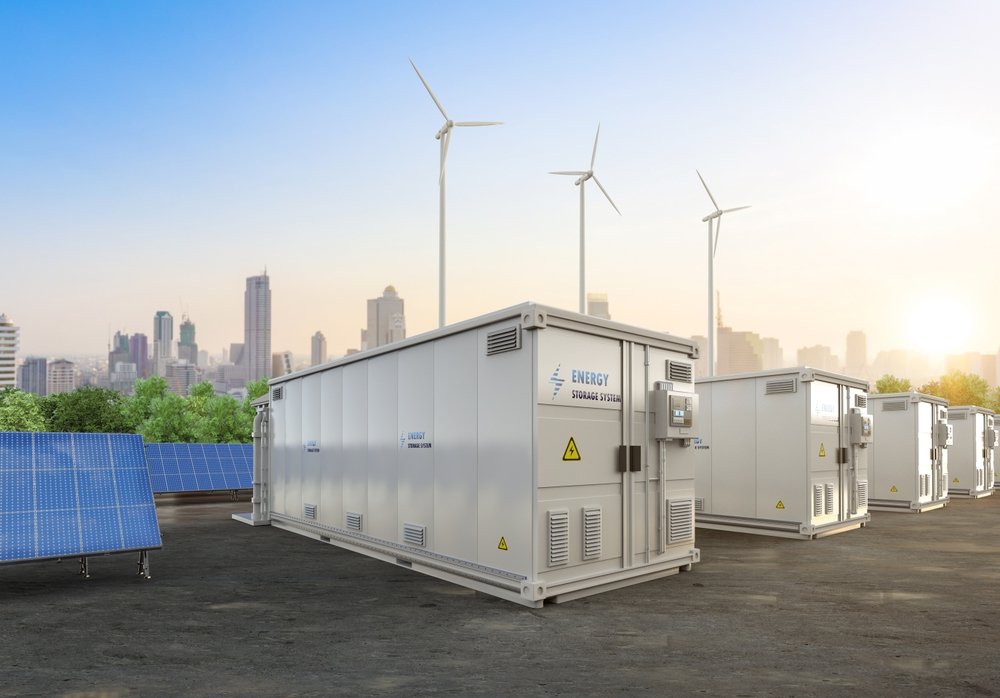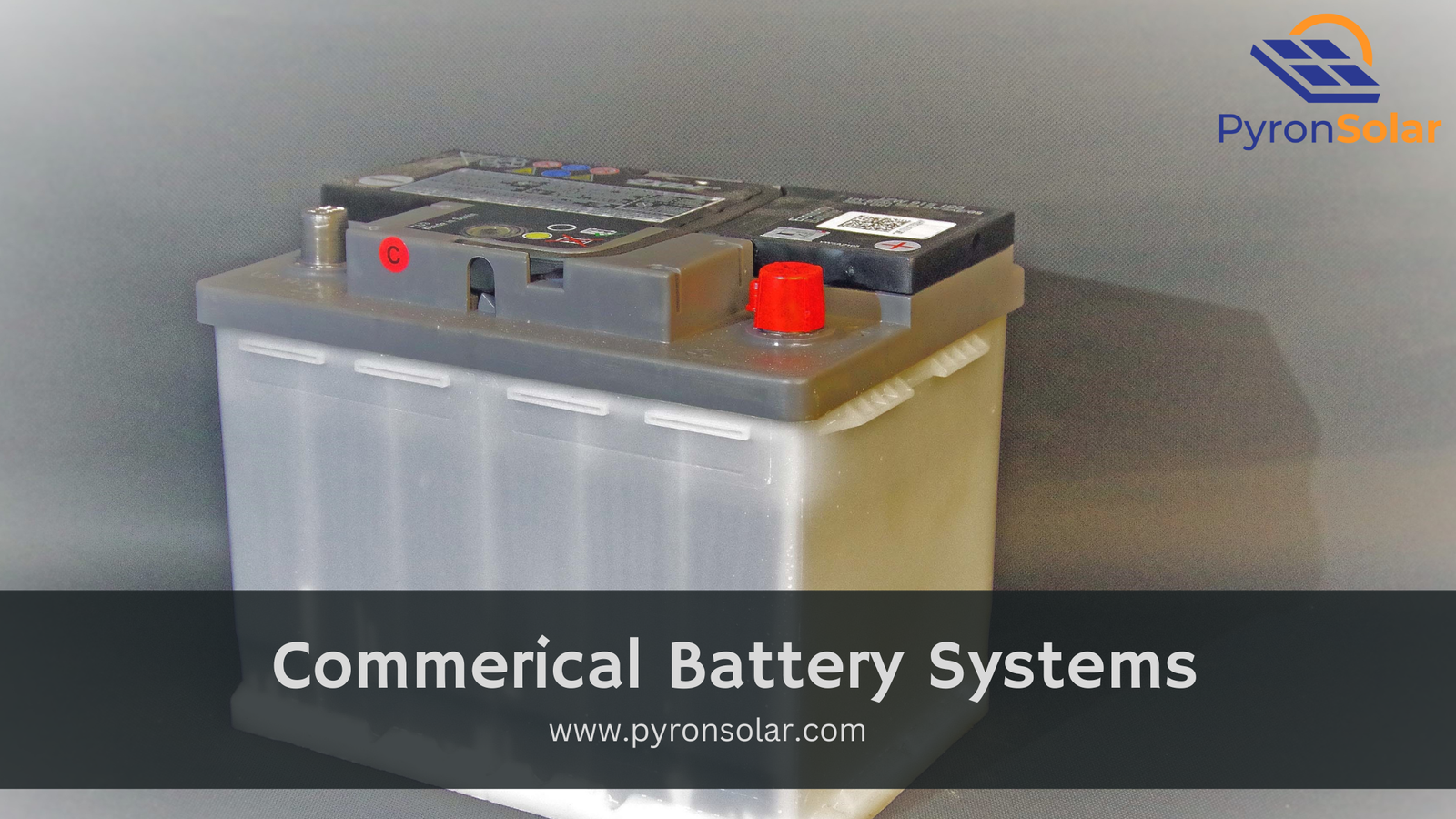Do you want to know what commercial battery systems are? If so, keep reading to learn more. Battery storage systems help in the storage of renewable energy.
The systems enable the energy for storage as well as its release. The energy commonly stored is solar or wind. This system is helpful in storing energy for later use. It can be used during a blackout or when there are power fluctuations.
The key feature of commercial energy storage systems is powering homes and businesses with clean, green energy. This feature is vital as it increases production and potentially reduces costs. Fossil fuels have been a staple for many years now, but their disadvantage is the carbon footprint it leaves behind. Over time, large-scale battery systems are now being used to support the incorporation of low-carbon power, heat, as well as transport technologies.
Types of Commercial Battery Systems

There are different types of battery systems for commercial use. They follow a similar principle as ordinary batteries but vary in their chemical formulation. The common ones are:
- Lithium-ion batteries
This is the most common type of battery used for large-scale battery systems. These are the type of batteries we use in our everyday lives. They are used in cell phones and laptops. Their lightweight nature is what makes it a suitable fit for various aerospace and military applications.
The lithium-ion batteries function when the lithium ions from the negative electrode move toward the positive electrode during discharge and moving back towards the negative electrode when charging the battery. The batteries’ electrode consists of an intercalated lithium compound which differs from the lithium commonly used in non-rechargeable lithium batteries. Its other features include being lightweight and costly.
- Lead-acid batteries
This battery is a widely-used rechargeable battery system. It is popularly known to be used for vehicles. It is the least expensive option. You can use this battery for high-current applications such as powering automobile starter motors.
They are large in size and often used for non-portable applications. Some of these activities include solar-panel energy storage and backup power. The batteries are known to have low energy-to-volume and fuel-to-weight ratios, making it possible to supply large surge currents when required. It is also eco-friendly, making it an attractive investment as most of the battery is recycled.
- Redox flow
This kind of battery has chemical and oxidation reactions that allow storing energy in liquid electrolyte solutions which flow through a battery of electrochemical cells during its charge and discharge. The term ‘redox’ is shortened to refer to the chemical reduction and oxidation reactions that occur in the storm. The process is as follows: an electron is released by oxidation, during the discharge, from a high chemical potential state on the battery’s negative side (or anode). Following this release, the electron moves through an external circuit until it is accepted at a lower chemical potential state through the battery’s positive side (or cathode). During charging, the process is the reverse from the direction of the current to the chemical reactions.
The emf/voltage of the battery is determined by the differences in chemical potential between the chemical states. It comprises of two types: true redox flow batteries and hybrid redox flow batteries. It is an economical choice when considering it as a large-capacity energy storage system due to its storage tanks and flow controls that are easy to scale. They can store energy for two to ten hours.
Benefits of Commercial Battery Systems
There are many merits for commercial battery systems. The biggest one is that it makes renewable energy a reliable energy source, thus making it a viable option for the future. Since the supply of solar or wind power may vary depending on the climate, industrial battery solutions ensure continuous energy flow whenever required.
- Cost savings
Commercial battery systems allow users to be flexible with their power usage. During peak periods of the day, one can use the stored energy by shifting consumption and saving money. Combining it with a solar system has even more benefits as it tends to produce energy at a lower rate than the utility. It can create a balance between the solar and grid electricity.
- Energy independence
Another perk of owning a commercial battery system is that it is independent from the grid. There is an uninterrupted flow of energy that can’t be paralleled with that from the energy grid during peak days or extreme weather conditions. Apart from that, it is also a reliable source of power backup in a power outage.
- Environmental sustainability
This one is a win for the eco-friendly giants. Battery systems for commercial use are a good investment for renewable energy as it reduces your carbon footprint. Solar energy systems are known to be eco-friendly, but with a battery system, you can reduce pollution and play a hand in the energy transition.
Applications of Commercial Battery Systems
There are many uses for a battery backup system. Given below is the list of applications that are commonly known:
- Backup power
This application is a common occurrence in whole-home solar systems. When using industrial battery solutions, it is vital to remember that you can store the excess energy that is produced by the solar panels and use it later. It is useful, especially during a blackout. Apart from that, it also proves to be a resilient power supply.
- Peak shaving
Peak periods of the day provide the best opportunity to save energy by minimal usage. The process of reducing energy consumption in this period is known as peak shaving. It requires the identification of electrical appliances with high electric demands and managing them appropriately.
- Time-of-use optimization
This includes the process of peak shaving. It comprises keeping track of the maximum energy consumption time and using it accordingly.
- Microgrid support
These grids rely on batteries and require energy storage to allow them to disconnect from the primary electrical grid.
Factors to consider when picking a Commercial Battery System
There are several factors to consider when selecting a commercial battery system. These will help you make the right pick that suits your needs. Keep reading to know the list of elements.
-
- Capacity
- Voltage
- Cycle life
- Efficiency
- Warranty
- Maintenance
Installation and Maintenance of Commercial Battery Systems
The structure of a commercial battery system is commonly known via its integration into the home’s solar system. Thus, making the installation connected to the grid. They can also be off-grid, making them an independent source for stored energy. This energy is later used during peak periods to avoid high electricity costs.
The maintenance of these commercial energy storage systems can vary based on their kind. Some may be automated systems that require little to no maintenance. In contrast, others may need a little more attention.
FAQs (Frequently Asked Questions)
What is the lifespan of a commercial battery system?
A commercial battery system can live a suitable lifespan based on its type. The average life span can range between 5 to 25 years. The commonly used lithium-ion batteries have a lifespan of 15 years.
How much does a commercial battery system cost?
The pricing may vary based on the type of commercial battery system used. On average, it would be about $198/kWh to $246/kWh.
Can a commercial battery system be used for residential purposes?
Battery energy storage systems have multiple uses and can be used across all circles. In this case, you can use commercial battery systems for residential purposes.
Are commercial battery systems eligible for tax credits?
Yes, commercial battery systems are eligible for tax credits.
That’s a wrap on commercial battery systems. We hope that this guide helps you choose the perfect one for you.
Ray is an avid reader and writer with over 25 years of experience serving various domestic and multinational private and public energy companies in the USA.

